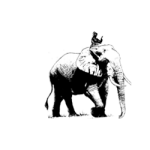 You’ve heard expressions like this, “The logical thing to do is…This doesn’t make sense…Why don’t they do it this way…It’s really very simple …Make a list and follow it… Just put the fork down…I don’t understand, I can do it, why can’t you…, You need more self control…”
You’ve heard expressions like this, “The logical thing to do is…This doesn’t make sense…Why don’t they do it this way…It’s really very simple …Make a list and follow it… Just put the fork down…I don’t understand, I can do it, why can’t you…, You need more self control…”
You have also heard expressions like this, “Something came over me and I just did this…I was so flustered that I forgot to…I promised I wouldn’t, but the smell of those biscuits… I know this is what I should do, but not right now, maybe later …”
I was listening to Jonah Lehrer on Terry Gross’ radio show, “Fresh Air”, and he was discussing his book, How We Decide. Broadly, he was talking about the interplay between our logical and emotional sides. Historically, we think that logic controls our emotions. As an example, Mr. Lehrer discussed Plato’s view that logic is a rational charioteer controlling the steeds of emotions. Mr. Lehrer commented that most scientist these days would broaden Plato’s view on logic, that it is more like a “rider trying to control the elephant” of emotions. That image really appealed to me. If anyone has ever seen a human astride an elephant, it is quite obvious that the elephant is, at best, accommodating the rider. There is no illusion in my mind as to what happens if the human crosses the line of irritation for the elephant.
Great thinkers try to elevate logic to a point where it is separated from emotions. The aspiration is that clean, unencumbered logic will make great decisions. Mr. Lehrer makes the point that it is just the opposite, we need the interplay of logic and emotions to make reliable judgments. Our ability as a species to use logic in problem solving is relatively new compared to the longer-term development of our emotions. From a system’s perspective they are integrated, not separate.
From my experience in working with individuals and organizations, observing the incongruity between what people say and what they do, Steering the Elephant is a great image that explains a lot.